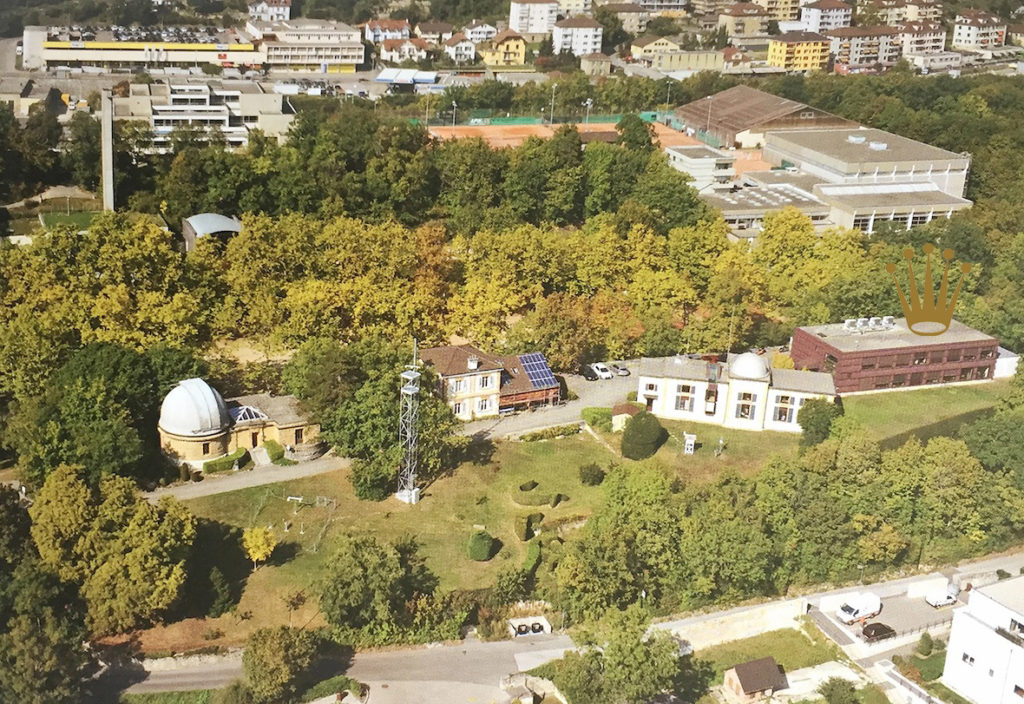
University of Bern detects neutrinos with a prototype at the DUNE observatory
21 August 2024
 Livio Calivers, PhD student at the Laboratory for High Energy Physics (LHEP) at the University of Bern (in the center) and Prof. Dr Michele Weber, Director of the Laboratory for High Energy Physics (LHEP) at the University of Bern (on the right) in the control room at Fermilab when the first neutrino interactions were measured. | © Dan Svoboda, Fermilab
Livio Calivers, PhD student at the Laboratory for High Energy Physics (LHEP) at the University of Bern (in the center) and Prof. Dr Michele Weber, Director of the Laboratory for High Energy Physics (LHEP) at the University of Bern (on the right) in the control room at Fermilab when the first neutrino interactions were measured. | © Dan Svoboda, Fermilab
The University of Bern has successfully tested its “ND-LAr” detector prototype at Fermilab, marking the first detection of neutrinos in the world’s largest neutrino experiment, DUNE.
In a major milestone for particle physics, researchers at the University of Bern have successfully detected neutrinos with their “ND-LAr” detector prototype at the Deep Underground Neutrino Experiment (DUNE) in the USA. DUNE, currently under construction at Fermilab near Chicago, will be the world’s largest neutrino observatory, involving more than 1,400 researchers from over 200 institutions worldwide.
Neutrinos, fundamental particles of the early universe, hold the key to understanding some of the deepest questions in physics, including why there is more matter than antimatter in the universe. The DUNE experiment, which spans two sites – Fermilab and the Sanford Underground Research Facility in South Dakota – aims to study these elusive particles by tracking how they change as they travel through the Earth.
The University of Bern, through its Laboratory for High Energy Physics (LHEP) and the Albert Einstein Center for Fundamental Physics (AEC), has been instrumental in the development of the ND-LAr detector, which uses innovative liquid argon technology. This detector is designed to capture highly detailed 3D images of neutrino interactions, providing unprecedented insight into these particles.
“The successful detection of neutrinos using the ‘2×2’ prototype allows us to finalize the design of ‘ND-LAr’ and then start building the near detector,” said Michele Weber, director of LHEP and head of the DUNE group in Bern. The prototype, consisting of four smaller liquid argon modules, has been tested at Fermilab’s neutrino beamline, where it successfully recorded its first neutrinos, validating the technology and design.
This achievement represents a major step forward in the DUNE project, which is expected to be fully operational by 2030. The data collected from the prototype will be instrumental in refining the final design of the ND-LAr detector and advancing the study of neutrinos. “This data will be used for many doctoral theses and scientific publications and will be the basis for the commissioning of the ‘ND-LAr’ in 2030,” added Livio Calivers, who built the prototype as part of his doctoral thesis.
The University of Bern‘s participation in DUNE is supported by the Swiss National Science Foundation, the State Secretariat for Education, Research and Innovation, and European funding.

